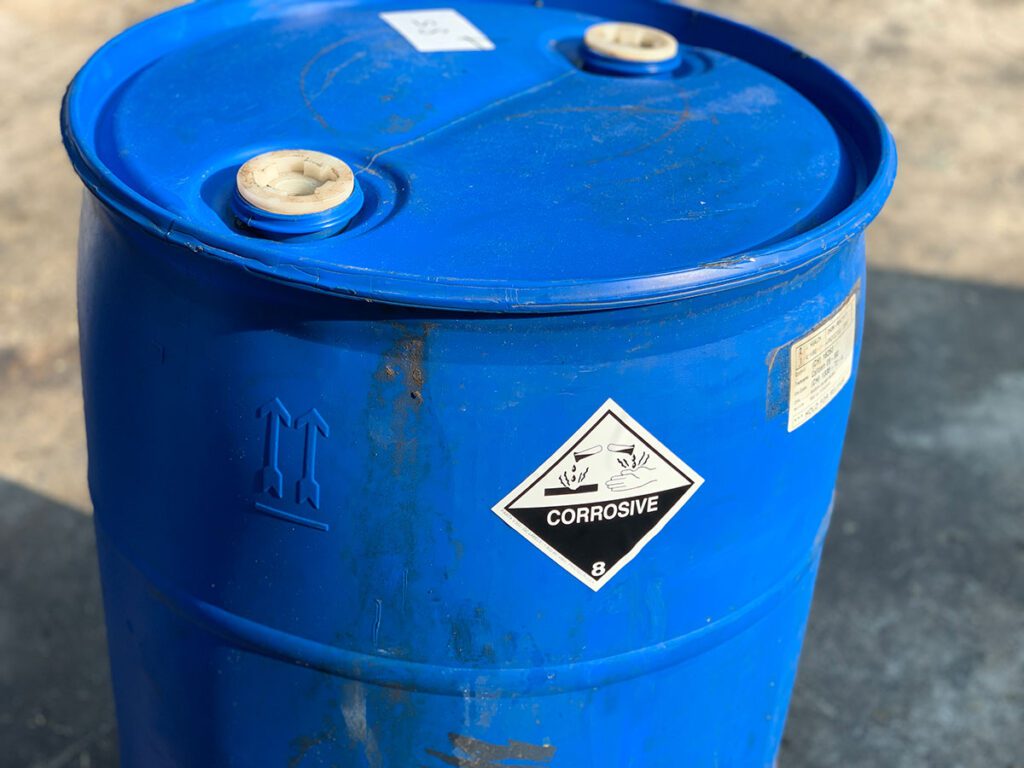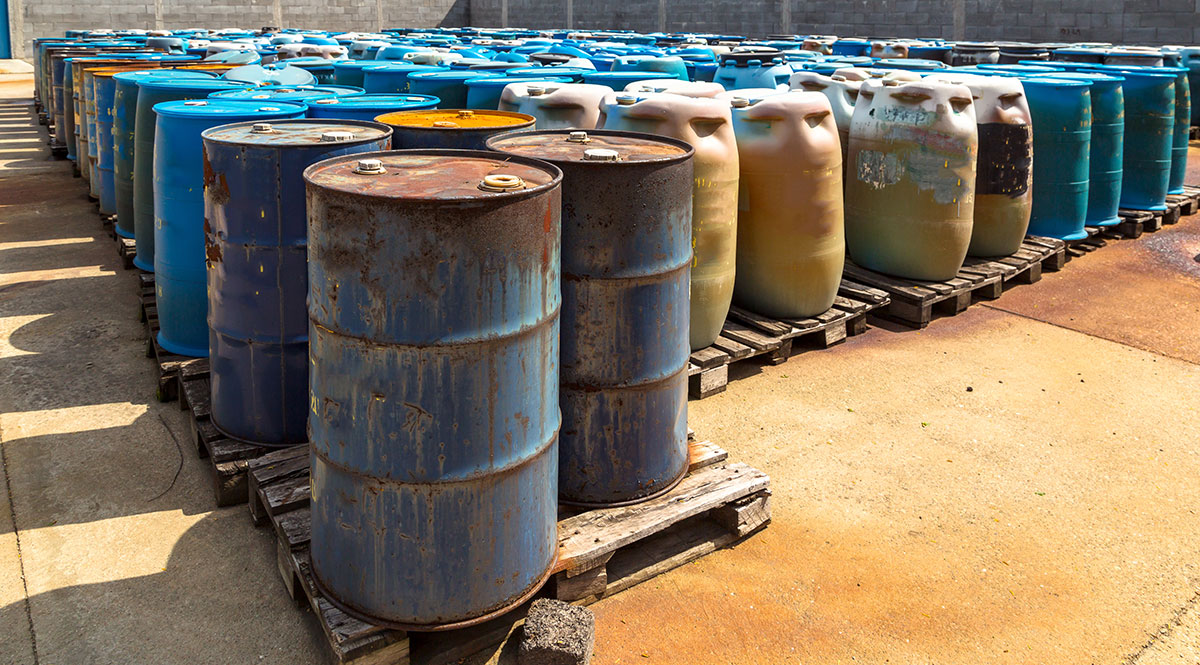In need of efficient waste removal solutions? Look no further! NC is here to provide you with expert solutions for effective waste removal. With our extensive knowledge and experience in the industry, we understand the importance of properly managing and disposing waste. Our team of experts is dedicated to delivering top-notch services, tailored to meet your specific needs. Say goodbye to the hassle and stress of waste removal, and let NC take care of it for you. Trust us to handle your waste with professionalism and efficiency.
1. Overview of Waste Removal in NC
1.1 Importance of Effective Waste Removal
Effective waste removal is crucial for maintaining a clean and sustainable environment in North Carolina (NC). Proper waste management ensures the protection of public health, prevents the spread of diseases, and minimizes the negative impact on natural resources. Adequate waste removal also plays a significant role in reducing pollution and preserving the beauty of our state. By disposing of waste properly, we can create a safer and more livable NC for everyone.
1.2 Challenges in Waste Removal Process
While waste removal is important, it does come with its fair share of challenges. One of the major obstacles is the rapidly increasing population, which leads to a significant increase in waste generation. Moreover, the diversity of waste streams adds complexity to the removal process. From household waste to industrial waste, each type requires different handling procedures, making waste removal a multidimensional task. Another challenge is the need to minimize the environmental impact of waste removal methods, as conventional practices can contribute to pollution and climate change. Overcoming these challenges requires innovative approaches and expert solutions.
2. Waste Removal Methods
2.1 Traditional Waste Removal Methods
In the past, traditional waste removal methods mainly focused on landfilling, where waste was disposed of in designated areas. While this method is still prevalent in some cases, it has several drawbacks. Landfilling can contribute to soil and water contamination if not managed properly. It also requires a significant amount of space, which may not be economically feasible in densely populated areas. Additionally, the decomposition of organic waste in landfills can release harmful greenhouse gases, contributing to climate change.
2.2 NC’s Waste Removal Regulations
To address the issues associated with traditional waste removal methods, North Carolina has implemented strict waste removal regulations. These regulations aim to promote sustainable waste management practices, reduce landfill waste, and encourage the adoption of environmentally friendly alternatives. NC has set waste reduction and recycling goals to minimize the amount of waste being sent to landfills. By complying with these regulations, waste removal companies can help mitigate the environmental impact of waste disposal.

3. Role of Experts in Waste Removal
3.1 Importance of Expertise in Waste Removal
The role of experts in waste removal cannot be overstated. Professionals with expertise in waste management possess the knowledge and skills required to handle waste efficiently and safely. They are well-informed about the latest waste removal techniques, regulations, and technologies. Their expertise allows them to assess waste streams accurately, determine appropriate disposal methods, and identify opportunities for waste reduction and recycling. By relying on experts, we can ensure that waste removal is carried out effectively, minimizing environmental harm and optimizing resource recovery.
3.2 Expert Waste Assessment and Planning
One of the key contributions of waste removal experts is their ability to conduct comprehensive waste assessments and develop effective waste removal plans. Experts analyze the composition and volume of waste streams, identifying recyclable and non-recyclable materials. They propose waste segregation strategies to facilitate efficient sorting and minimize contamination. Additionally, experts consider factors such as transportation logistics, legal requirements, and environmental impacts when designing waste removal plans. Their expertise enables them to develop tailored approaches that address the specific waste management needs of different industries and communities.
4. Waste Segregation and Sorting Techniques
4.1 Benefits of Waste Segregation
Waste segregation is a fundamental step in the waste removal process. It involves separating different types of waste based on their characteristics and properties. By segregating waste at the source, we can enhance recycling efficiency, minimize landfill waste, and reduce environmental pollution. Segregation allows for the identification and proper handling of hazardous materials, ensuring the safety of waste removal personnel and protecting the environment. Moreover, waste segregation enables the recovery of valuable resources, reducing the pressure on virgin materials and promoting a more sustainable circular economy.
4.2 Techniques for Effective Waste Sorting
To achieve effective waste sorting, various techniques and technologies can be employed. Manual sorting, using trained personnel, is commonly employed for smaller-scale operations. This method ensures a high level of control but may be time-consuming and labor-intensive. Automated sorting technologies, such as optical sorters and magnetic separators, are increasingly being used to improve sorting accuracy and efficiency. These technologies utilize sensors and artificial intelligence algorithms to identify and separate different types of waste materials. By combining both manual and automated sorting techniques, waste removal experts can optimize the waste sorting process and maximize resource recovery.

5. Recycling and Composting Solutions
5.1 Promoting Recycling Practices
Recycling plays a vital role in waste removal, as it diverts materials from landfills and reduces the consumption of raw materials. Waste removal experts actively promote recycling practices by working closely with communities, businesses, and local government entities. Public awareness campaigns are launched to educate citizens about the importance of recycling and proper waste disposal. Recycling facilities are established to process recyclable waste materials and prepare them for reuse. By encouraging recycling, waste removal experts contribute to a more sustainable and resource-efficient NC.
5.2 Composting as a Sustainable Waste Management Solution
Composting offers an environmentally friendly solution for managing organic waste. Instead of sending organic waste to landfills, which contributes to greenhouse gas emissions, experts advocate for its composting. Composting involves the decomposition of organic waste materials, such as food scraps and yard trimmings, in a controlled environment. This process produces nutrient-rich compost that can be used as a soil amendment in agriculture and landscaping. Waste removal experts promote the establishment of composting facilities and educate the public about the benefits of composting. By implementing composting practices, NC can reduce landfill waste, conserve resources, and improve soil fertility.
6. Innovative Technologies for Waste Removal
6.1 Automation and Robotics in Waste Removal
Innovation and technological advancements have revolutionized waste removal processes. Automation and robotics play a significant role in improving operational efficiency, reducing costs, and enhancing safety in waste management. Automated collection systems, equipped with robotic arms, can efficiently collect and empty waste containers, reducing the physical strain on waste removal personnel. Robotic technologies are also employed in sorting facilities, where they can identify and separate different types of recyclable materials with high precision and speed. By embracing these innovative technologies, waste removal experts in NC can streamline their operations and achieve better outcomes.
6.2 Sensor-Based Waste Monitoring Systems
Sensor-based waste monitoring systems offer real-time insights into waste generation, enabling waste removal experts to optimize their collection and transportation strategies. These systems utilize sensors placed in waste containers to measure fill levels and provide data on collection frequency and route optimization. This technology helps prevent overflowing bins, reduces unnecessary collection trips, and minimizes fuel consumption and greenhouse gas emissions. By implementing sensor-based waste monitoring systems, NC can improve the efficiency of waste removal processes and reduce the environmental impact associated with collection and transportation.

7. Efficient Collection and Transportation
7.1 Optimal Route Planning
Efficient collection and transportation are key factors in waste removal. Waste removal experts utilize advanced route planning techniques to minimize travel time, fuel consumption, and vehicle emissions. Geographic Information System (GIS) technology is employed to analyze data on waste generation, population density, and traffic patterns. This information allows experts to develop optimized collection routes that ensure timely waste pickup while minimizing environmental impact. By adopting efficient route planning strategies, waste removal companies in NC can improve their operational efficiency and contribute to sustainable waste management practices.
7.2 Fleet Management and Tracking
Fleet management and tracking systems are integral to ensuring the smooth operation of waste removal activities. By equipping waste removal vehicles with GPS and telematics technology, experts can track the location, speed, and performance of each vehicle in real-time. This enables them to monitor the progress of waste collection routes, identify potential bottlenecks or issues, and make necessary adjustments promptly. Additionally, fleet management systems help optimize vehicle maintenance schedules, reducing downtime and improving overall operational efficiency. With efficient fleet management and tracking systems in place, waste removal experts can provide reliable and timely waste removal services to the communities in NC.
8. Waste Disposal: Landfills and Incineration
8.1 Environmentally-Friendly Landfill Practices
While efforts should be made to reduce waste generation and increase recycling rates, landfills still play a role in waste disposal. Waste removal experts in NC advocate for environmentally friendly landfill practices to minimize the negative impact on the environment. These practices include proper landfill design and engineering to prevent contamination of soil and water, installation of gas collection systems to capture and utilize landfill gases, and implementation of leachate management systems to treat and control contaminated water. By implementing these practices, waste removal experts ensure that landfills are operated in a responsible and sustainable manner.
8.2 Safe Incineration Techniques
Incineration is another waste disposal method that can be utilized under controlled conditions. Waste removal experts in NC promote safe incineration techniques that minimize the release of pollutants. Modern incinerators are equipped with advanced emission control systems, such as scrubbers and filters, to remove harmful gases and particulate matter before being released into the atmosphere. Incineration can help reduce the volume of waste that needs to be landfilled while generating energy through the combustion process. By adhering to strict regulatory standards and investing in state-of-the-art incineration technologies, waste removal experts ensure that waste is disposed of safely and responsibly.

9. Waste Management Education and Awareness
9.1 Importance of Public Education
Public education plays a crucial role in promoting effective waste management practices. Waste removal experts emphasize the importance of raising awareness among individuals, households, and businesses about waste reduction, recycling, and responsible waste disposal. Educational campaigns are conducted through various channels, including schools, community centers, government agencies, and social media. By empowering individuals with the knowledge and understanding of proper waste management, NC can foster a culture of sustainability and encourage active participation in waste reduction and recycling efforts.
9.2 Partnering with Schools and Communities
To enhance waste management education and awareness, waste removal experts collaborate with schools and communities. They organize workshops, seminars, and interactive sessions to educate students, teachers, and community members about the significance of waste removal and sustainable waste management practices. By actively engaging with schools and communities, waste removal experts can instill lifelong habits and values related to environmental stewardship. Through such partnerships, NC can nurture a generation of environmentally conscious individuals who will contribute to a cleaner and greener future.
10. Collaboration between Government and Private Sector
10.1 Effective Waste Removal Policies
Efforts to achieve effective waste removal in NC are significantly strengthened through collaboration between the government and the private sector. The government plays a vital role in formulating and implementing waste removal policies and regulations that address environmental concerns and promote sustainable waste management practices. Waste removal experts actively participate in the policy-making process, providing valuable insights and expertise to shape effective waste removal policies. By working together, the government and the private sector can create a supportive regulatory framework that facilitates responsible waste removal and protects the environment.
10.2 Public-Private Partnerships for Waste Management
Public-private partnerships are essential for leveraging expertise, resources, and innovation in waste management. The collaboration between waste removal experts and government entities can lead to the development of efficient waste management systems and the implementation of advanced technologies. Public-private partnerships can also enhance the funding and infrastructure required for effective waste removal. By combining the strengths of the public and private sectors, NC can address waste management challenges more effectively, achieve sustainable waste removal goals, and create a cleaner and healthier environment for all.
In conclusion, waste removal in North Carolina relies on the expertise and efforts of dedicated professionals. By prioritizing effective waste removal methods, promoting recycling and composting, embracing innovative technologies, optimizing collection and transportation, and ensuring responsible waste disposal, waste removal experts in NC contribute to a cleaner, greener, and more sustainable future for our state. With the collaboration between government and the private sector, along with public education and awareness, we can overcome the challenges in waste removal and create a better environment for generations to come.

